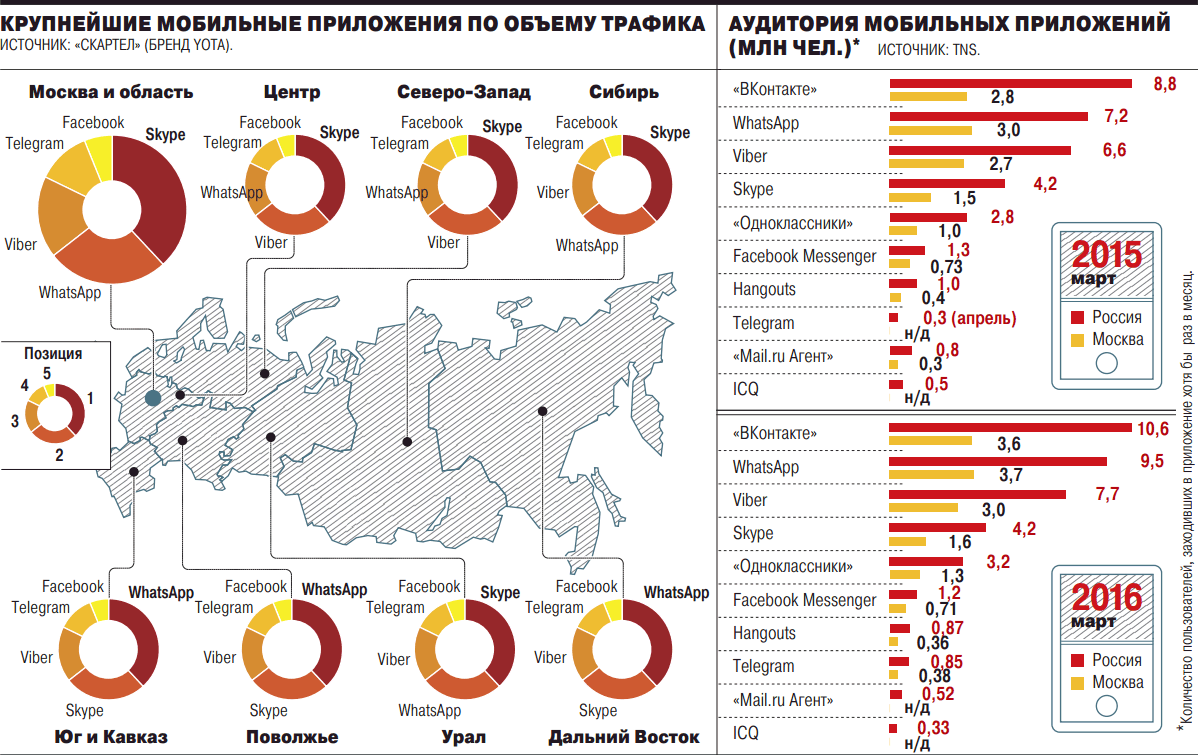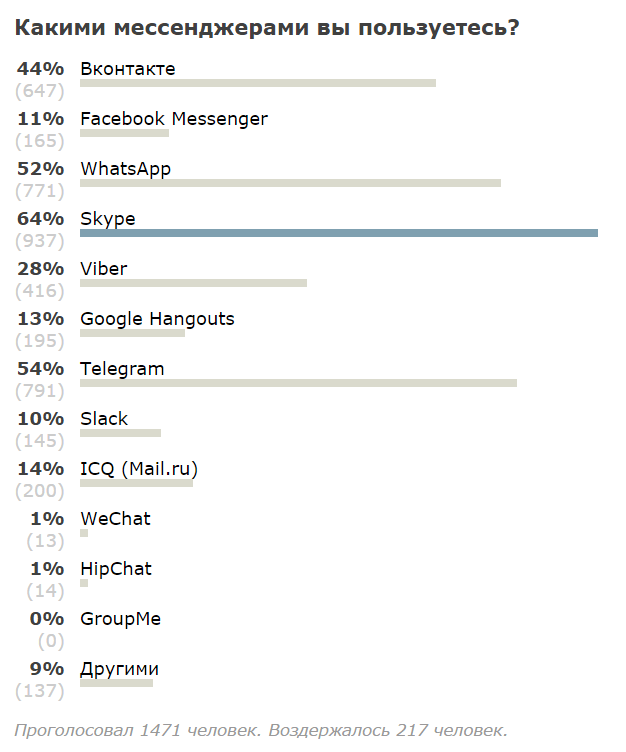Messengers "eat up" telecom operators, they are preparing a retaliatory strike

Russian telecom operators regretfully state that they have overslept the appearance of instant messengers .
Due to instant messengers and other mobile applications, mobile operators around the world lost $ 14 billion in 2014, according to Juniper Research. The losses of Russian operators amounted to 15–20 billion rubles - about 2% of revenues, according to J`son & Partners Consulting. But the figure is growing very fast. According to VimpelCom, in December 2015, messengers already had 8.3 times more traffic than in July, and the growth continues at the same pace.
')
All over the world, about 3-4 billion people use daily messengers, which is a quarter more than the audience of social networks.

According to Russian statistics, in the Caucasus, the Far East and the Volga region the most popular messenger is WhatsApp, in all other regions Skype, in third place Viber.
Among the visitors of Geektimes, the most popular messengers are Skype and Telegram.

Messengers have already influenced the mobile market, and now can make a revolution in other areas. For example, bots on chat channels are a very promising direction, writes the Kommersant publication. “The question“ Can I come and cut your hair now? ”Ask 90% of people calling to the hairdresser. The person on the other end of the wire looks at the calendar, sees what is wrong, suggests another time. It's easy to automate, ”says Andrei Yaroshevsky from Chatfuel.
Bots reduce customer service costs three to five times, according to Sergey Negodyaev, director of portfolio management at the Internet Initiatives Development Fund. An automatic assistant can facilitate communication with a large audience when questions are standard and can be systematized.
Through messengers, you can even make money transfers: “For example, in the US, you can already transfer money to a friend in Facebook messenger — and this is one of the best experiences I've experienced lately,” says Andrey Yaroshevsky.
However, Russian telecom operators will not just give up: telecommunications companies around the world have overslept the appearance of instant messengers because they have not invested money in developing new technologies in time, said Vladimir Evtushenkov, the main owner of AFK Sistema, in a recent interview with Russia 24. Companies that want to remain in the lead need to invest in the development of new technologies, create their own instant messengers and think about the ability to charge for the use of their infrastructure .
“Operators create similar services,” Kommersant writes. - MTS has an MTS Connect messenger. MegaFon launches the eMotion messenger, and Rostelecom is developing the AllO mobile application to which you can connect a fixed phone number. In addition, at the end of last year, MTS, MegaFon, VimpelCom and T2 RTK Holding (Tele2 brand) united in an alliance to standardize the IP interfaces of Internet services, including instant messengers, and to attract the attention of the authorities .
“The activity of mobile operators is licensed, while Internet companies provide, in essence, the same services - the ability to call, send a message, but the law does not define IP services, there are no rules for them,” explained MTS Vice President for Vasil Latsanich marketing. Approaches to the regulation of OTT services (over the top are online services that operate on the networks of telecom operators without licenses) are developed in Roskomnadzor and the Media Communication Union. There is a proposal to introduce the term “information and communication service” into legislation, and the operators also agreed to limit the share of foreign capital in such companies to 20%, a source in Rostelecom told Kommersant.
That is, foreign messengers in Russia will not be given a license at all.
The preparation of the draft law on the regulation of OTT services will be completed in the summer.
Source: https://habr.com/ru/post/394767/
All Articles